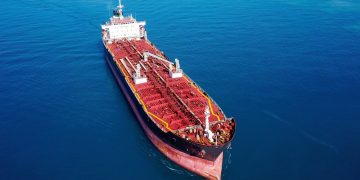The IMO HNS Correspondence group has published information regarding the HNS convention, benefits and statistics on chemicals trades.
The International Convention on Liability and Compensation for Damage in Connection with the Carriage of Hazardous and Noxious Substances by Sea, 1996 – known as the HNS Convention – aims to ensure adequate, prompt and effective compensation for damage to persons and property, for costs of clean up and reinstatement measures and economic losses resulting from the maritime transport of hazardous and noxious substances.
Benefits of the HNS Convention
- The HNS Convention establishes that the polluter pays by ensuring that the shipping and HNS industries provide compensation for those who have suffered loss or damage resulting from an HNS incident
- It is an international regime based on a well tested system of international conventions for compensation for oil spills from tankers.
- It provides a framework for States adopting the HNS Convention and it is directly administered by those States that are members of the regime.
- The HNS Convention benefits all State Parties (producing, receiving and coastal States) through a system of strict liability and clear claims criteria
- The shipping, oil, gas, chemical, petrochemical and other HNS industries are committed to paying such compensation through an international system:
- Shipowners are held strictly liable up to a maximum limit of liability for the cost of an HNS incident.
- Shipowners are required to have insurance that is State certified. Claimants may take action directly against the insurer.
- Receivers of bulk HNS cargoes contribute to an international compensation fund administered by States.
- Contributions will be based on the actual need for compensation.
- Up to SDR250 million is available per incident.
Top HNS Shipped by sea
- Sulphuric Acid
- Hydrochloric Acid
- Sodium Hydroxidee/ Caustic Soda
- Phosphoric Acid
- Nitric Acid
- LPG/ LNG
- Ammonia
- Benzene
- Xylene
- Phenol
Compensation: The Missing Link
Prevention
International regulations are in place covering:
• Ship design, operations and safety on board
• Safe transport of dangerous goods
• Safety of loading and unloading operations
Preparedness & Response
International regulations are in place encouraging (or facilitating):
• Preparedness and response to shipping incidents, including HNS
• International or regional arrangements for pollution response
Liability & Compensation
In the event of an HNS incident during transport by sea:
• No uniform and comprehensive international regime currently in force to provide compensation for costs, including clean-up and restoring the environment
Please click below to find IMO HNS Guide
Source: The Swedish P&I Club



































































